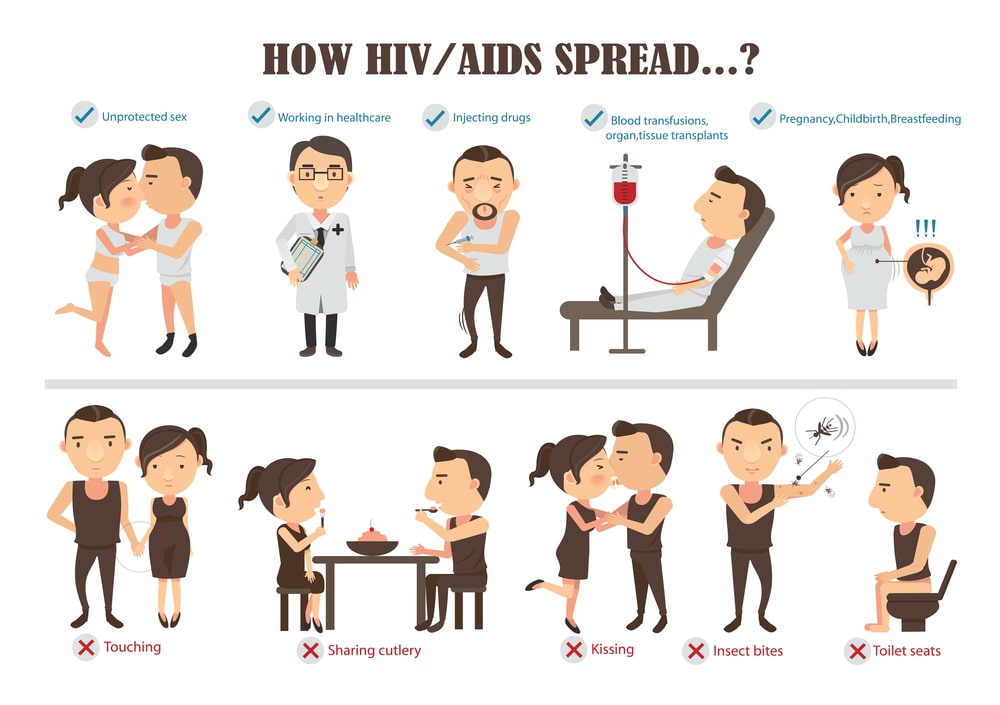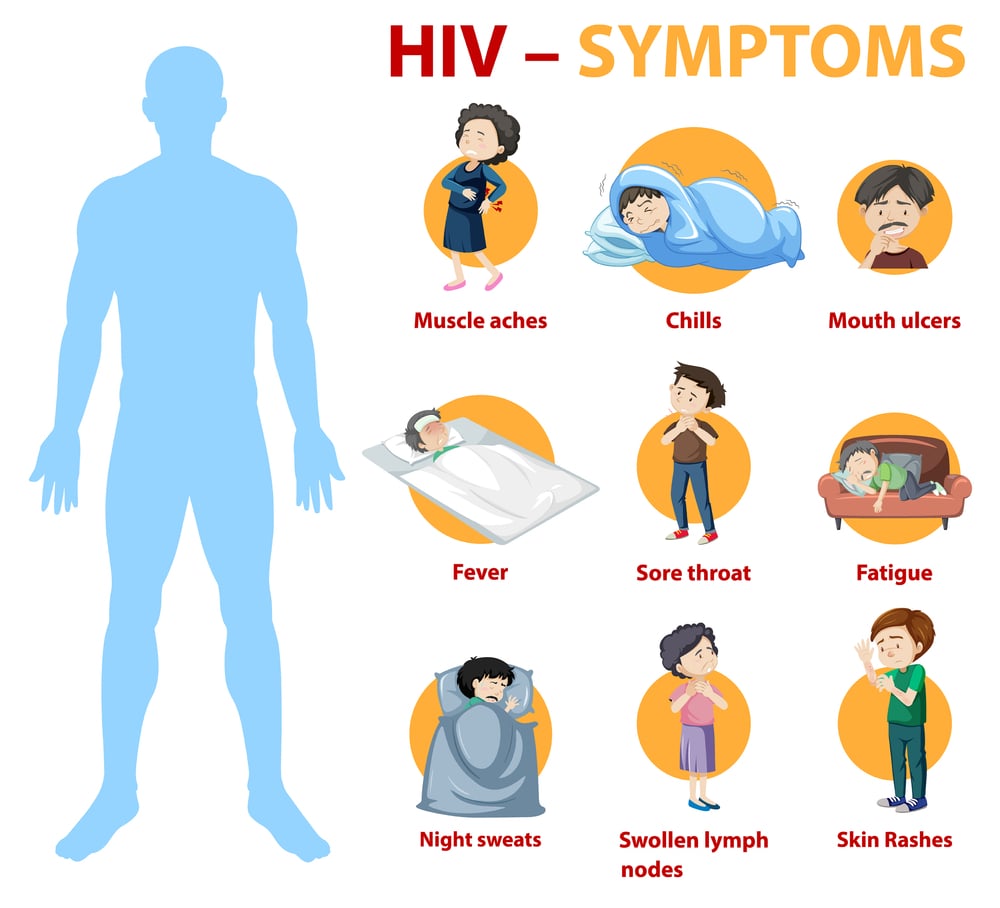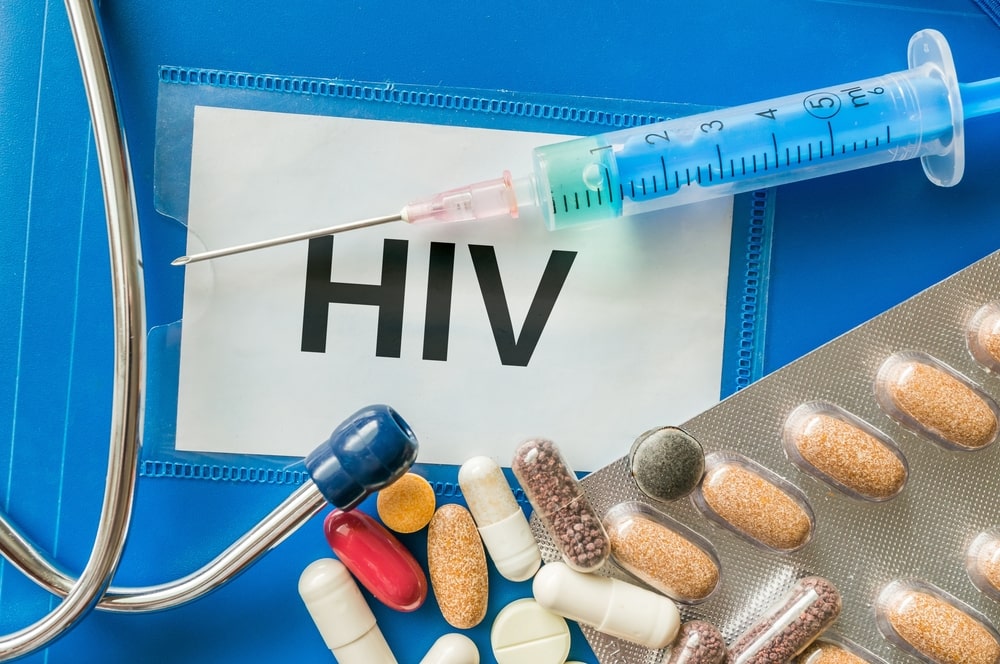Can HIV Cause Hair Loss?
HIV (Human Immunodeficiency Virus) is a virus that affects the body’s immune system cells. Your body becomes more susceptible to various illnesses and infections as a result. Hair loss is frequently included as one of the symptoms of HIV (human immunodeficiency virus). While HIV is a virus that can indeed result in a variety of various consequences and symptoms, hair loss may or may not be one of them.
There is a lot of ongoing debate on the internet about whether can HIV cause hair loss. If yes, how can we avoid and prevent hair loss? Many individuals worry about losing their hair, which can be brought on by several things, including heredity, hormonal changes, stress, and medical disorders. For many people, losing hair comes naturally as they age. The most frequent causes of hair loss are hormonal changes with aging and genetics.
Here is all the information you require regarding the connections between HIV and hair loss, as well as how HIV ailments and medications may play a vital role in hair loss. In this blog, we’ll look at the connection between HIV and hair loss as well as the causes of hair loss in HIV-positive people.
HIV Causes:

Here are some of the main causes and ways that HIV is spread:
- Having unprotected sexual contact with an HIV-positive person is one of the most popular methods for the virus to spread. This also covers sexual activity performed with multiple partners or without the use of condoms or other safety precautions.
- Sharing needles or syringes with an HIV-positive individual can result in HIV transmission, especially among intravenous drug users.
- HIV can be passed from a woman who is HIV positive to her kid during childbirth, while nursing, or even while the mother is pregnant.
- HIV may be transferred through transfusions of blood and organs in transplant operations from infected donors. Because of strict screening, these occurrences are now quite uncommon.
- First responders and healthcare professionals may be at risk of HIV infection if they accidentally stab themselves with a needle or are exposed to contaminated materials. HIV has been transmitted through the use of infected medical supplies or equipment in hospitals. To avoid such incidents, strict infection control measures are in place.
- HIV transmission has been linked to the use of non-sterile tattooing or piercing equipment, particularly in uncontrolled or unclean environments.
HIV Symptoms:

The initial stage of HIV infection, acute HIV infection (primary infection), happens within the first few weeks of virus contact. Typical signs and symptoms at this phase include:
- Fatigue
- Throat discomfort swollen lymph nodes
- Rash
- Joint and muscle aches
- Headache
- Frequent or ongoing fever
- Sweats at night
- Fatigue
- Enlarged lymph nodes
- Unaccounted weight loss
- Illnesses that recur frequently, such as respiratory or urinary tract illnesses
- Skin conditions like rashes or sores
- Neurological signs such as nerve discomfort, melancholy, and memory issues
AIDS, or Acquired Immunodeficiency Syndrome, can develop if HIV infection worsens to the point that the immune system is seriously weakened. The person is more susceptible to opportunistic infections and some malignancies at this point.
Advanced HIV/AIDS symptoms can include:
- Persistent diarrhoea
- Drastic weight loss
- Pneumonia
- TB Tuberculosis (Meningitis)
- Kaposi’s sarcoma
- Dementia and mental illness
- Seizures
- Having trouble swallowing
- Continual tiredness
HIV testing is the only approach to accurately diagnose HIV because HIV symptoms might resemble those of other diseases. It is very important to seek medical assistance and get tested if you think you may have been exposed to HIV or if you are exhibiting any of the symptoms listed. Antiretroviral therapy (ART) can be used to manage the virus, decrease the spread of the disease, and enhance general health outcomes.
HIV And Telogen Effluvium:

To get a deeper insight into whether can HIV cause hair loss, let us understand more about telogen Effluvium. The temporary thinning of hair brought on by a number of circumstances is known as telogen effluvium (TE).
These include childbirth, mental stress, rapid weight loss, nutritional deficiencies, hormonal abnormalities, different medications, acute or severe chronic disease, and inflammatory or infectious conditions of the scalp.
These circumstances may cause hair follicles to cease developing hair and enter a resting period. According to one study, 8.4% of a group of HIV-positive individuals had telogen effluvium.
Telogen effluvium can be associated with HIV, Not all individuals with HIV will experience significant hair loss, and the severity of hair loss can vary widely from person to person based on the following factors:
- Physical or psychological stressors like illness, surgery, delivery, or a high fever frequently cause telogen effluvium. In its early stages, when the immune system is battling the virus, HIV is a persistent viral infection that can be stressful to the body.
- Hair loss may be one of the adverse effects of some antiretroviral drugs used to treat HIV. Although not all HIV drugs result in hair loss, some patients may do so as a side effect of their therapy.
- Nutrition choice: Hair loss in HIV-positive people may be exacerbated by dietary deficits. Telogen effluvium can be made worse by malnutrition or a lack of certain vitamins and minerals.
- Living with a chronic illness like HIV may be emotionally and psychologically stressful. The established causes of telogen effluvium are stress and worry, and controlling HIV-related pressure can contribute to hair loss.
- HIV can result in other illnesses or infections that could tangentially cause hair loss. For instance, some opportunistic infections can raise the body’s temperature and produce stress, which may lead to telogen effluvium.
Can HIV Cause Hair Loss?

To understand whether Can HIV cause hair loss, the simple answer is HIV does not directly cause hair loss, various HIV-related disorders may raise the possibility of hair thinning. Age-related hair loss, dietary inadequacies, secondary syphilis, telogen effluvium, and pharmaceutical side effects are a few potential reasons for hair loss in HIV-positive individuals.
Hair loss can come back on its own, depending on the cause. Sometimes, drugs or a change in lifestyle can be beneficial. Consultation with a healthcare professional is advised if you have HIV and hair loss.
They can assess your unique condition, determine any underlying causes, and offer advice on how to manage both your HIV and any related hair loss. Changing HIV drugs, treating dietary deficits, and controlling stress are all potential treatment strategies.
Indulging in a healthy lifestyle stress-reduction methods like yoga, meditation, and counseling help you manage the emotional difficulties of living with HIV. In some circumstances, minoxidil-containing shampoos or topical treatments may be suggested to encourage hair growth and prevent hair loss.
HIV Treatment:

Antiretroviral therapy (ART) is the mainstay of HIV (Human Immunodeficiency Virus) treatment, which has advanced significantly over time. ART is a combination of drugs intended to inhibit the virus, halt its spread, and protect the immune system.
Achieving an undetectable viral load—a level of the virus in the blood that is so low that it cannot be identified by routine tests—and preserving general health are two objectives of HIV treatment. An overview of HIV treatment is given below:
- Antiretroviral Therapy (ART): Antiretroviral medicines are a class of HIV medications that are taken in combination to treat HIV. These HIV medications function by focusing on several phases of the HIV life cycle, stopping the virus from replicating and lowering its levels in the body. When used consistently and according to instructions, ART can be very effective at controlling HIV.
- Initial Treatment: The initial ART regimen is chosen based on a number of variables, such as the person’s viral load, CD4 cell count, probable drug interactions, and any underlying diseases. Antiretroviral medications fall into several categories, including protease inhibitors (PIs), integrase strand transfer inhibitors (INSTIs), entry/fusion inhibitors, and nucleoside reverse transcriptase inhibitors (NRTIs).
- Strict Adherence and Monitoring: The efficacy of HIV therapy depends on strict adherence to the recommended medication schedule. Viral resistance and treatment failure might result from missed doses or improper pharmaceutical use. It’s critical to regularly check the HIV viral load and CD4 cell count to determine how well a medication is working. A major objective is to achieve an undetectable viral load because this shows that the virus is under control.
Hair loss was considered one of the major side effects of HIV medications. HIV medications used in earlier times result in alopecia or hair loss. Antiretroviral therapy (ART, a cocktail of drugs) as it is now practiced, however, shows decreased results in hair thinning.
The drug Zovirax (Acyclovir), commonly used in HIV treatment to treat viral diseases such as genital herpes, can also potentially cause hair loss.
HIV was formerly a fatal disease, but because of HIV medication, it is now a chronic condition that many individuals can manage. The best outcomes in HIV care depend on early diagnosis, prompt treatment beginning, and persistent adherence to medication regimens. HIV-positive people should collaborate extensively with medical professionals to customize their care to their unique requirements and situations.
FAQs:
Can HIV change your hair texture?
HIV does not directly alter the texture of a person’s hair. Changes in the texture and quality of hair are among the adverse effects of some antiretroviral drugs used to treat HIV. HIV can result in nutritional deficiencies, which may have an effect on general health and hair health. It can be difficult emotionally and psychologically to manage a chronic illness like HIV, which raises stress levels leading to hair loss.
What immune diseases cause hair loss?
Individuals with a variety of autoimmune illnesses may experience hair loss. A few autoimmune conditions that may cause hair loss include alopecia areata which affects the hair follicles directly. Lupus symptoms can include hair loss, which frequently manifests as hair thinning or hair loss in patches.
Hair loss, brittleness, and texture changes can be caused by thyroid conditions. Graves’ disease patients can also experience hair loss. Hair loss is a secondary symptom of Sjögren’s syndrome in some people. Gluten consumption can cause Celiac disease, which can lead to hair loss or textural changes in the hair.
What STD causes hair loss?
Some STDs can inadvertently cause hair loss for a variety of reasons, including stress, immune system side effects, or nutritional inadequacies. A bacterial STD called syphilis may cause hair thinning. HIV can also cause hair loss which is mainly due to an impaired immune system which creates other health issues.
The health of your hair may be indirectly affected by some of these issues. Additionally, HIV treatments’ negative effects, such as hair thinning, can also impact hair. Some people who are diagnosed with herpes may lose their hair.
At what stage does HIV cause hair loss?
Especially in the early stages of the disease, hair loss is not frequently linked to HIV infection. However, a number of aspects of HIV infection, the course of the disease, and its management can indirectly cause hair loss.
HIV-related chronic stress can exacerbate hair loss issues that already exist or cause transient hair thinning. These issues might indirectly impair overall health, including hair health, in advanced stages of HIV infection when the immune system is severely weakened.
What infections can cause hair loss?
Numerous infections may cause hair loss or changes in the health of the hair, either directly or indirectly. Depending on the type and severity of the illness, there can be variations in the amount and pattern of hair loss. Infections caused by fungi, such as ringworm (tinea capitis), can affect the scalp and result in patchy hair loss.
Hair loss may occur in the affected areas of the scalp or skin as a result of cellulitis, impetigo, or folliculitis (inflammation of hair follicles). When People question can HIV causes hair loss, the complications associated with HIV may lead to the thinning and temporary loss of hair.

